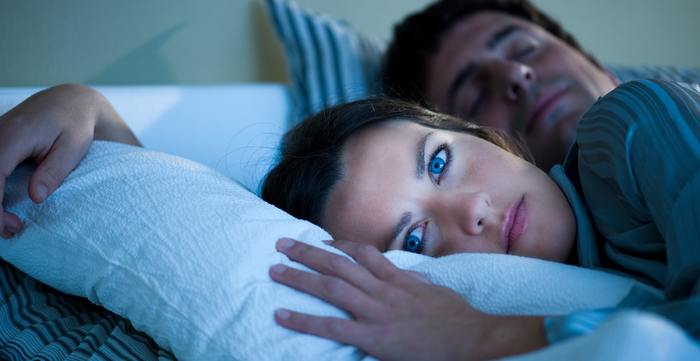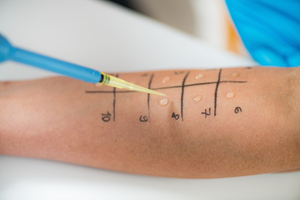Key points
- Recommended sleep hours vary by age, with infants needing up to 13 hours and adults needing 7.5 to 8 hours.
- Health conditions like heart failure, sleep apnea, and psychiatric disorders can affect sleep patterns.
- Certain medications, including decongestants and antidepressants, can cause sleep problems.
- Recognizing sleep issues involves monitoring sleep patterns, environment, and daytime drowsiness.
- If you experience difficulty in sleeping despite following the recommended sleep hours, it's suggested to start a sleeping log to help physicians determine the cause of your sleep issues.

The number of recommended sleep hours you need each night depends on age, however, there are other factors to consider such as health conditions and the medications you take. So, how many hours should you slumber and when should you be concerned about sleeplessness?
Recommended Sleep by Age
The Mayo Clinic says sleep needed according to age is:
- Infants: 9 to 10 hours with daily naps of 3 hours or more.
- Toddlers: 9 to 10 hours with up to 3 hours of naps per day.
- School-Aged Children: 9 to 11 hours each night.
- Teens: 8.5 ours to 9.25 per night.
- Adults: 7.5 hours to 8 hours.
Infants who sleep too much or too many hours may need physician family care to determine the reason, especially since they are unable to communicate problems.
Health Conditions That Affect Sleep
Some people are unable to gain recommended sleep hours due to health conditions. These include:
- Congestive heart failure
- Breathing issues such as asthma, COPD or emphysema
- Sleep apnea
- Diagnosed sleep disorders, insomnia
- Acid reflux disease
- Obesity
- Urinary Incontinence
- Hyperthyroidism
- Chronic pain
- Dementia
- Parkinson's Disease
- Fibromyalgia
- Restless leg syndrome
There are also psychiatric conditions that may cause you to lose sleep including:
- Psychosis
- Mania
- Depression
- Anxiety
- Posttraumatic stress disorder (PTSD)
If you suffer from one of these conditions and sleep is a problem, it's possible to get immediate help from 24 hour urgent care centers.
Sleep Deprivation from Medications
Some people are sleepless from a variety of medications — including prescribed medications. Ask your family care doctor if you are taking OTC drugs or prescription medicines and experience sleep problems.
Common medications include:
- Decongestants like pseudoephedrine, especially if taken too late in the day
- Alpha or beta blockers for high blood pressure.
- Corticosteroids used to treat lupus, arthritis and gout.
- SSRI antidepressants, these are best taken in the morning upon awakening.
- Ace inhibitors for high blood pressure, kidney disease or diabetes
- Glucosamine and chondroitin as these can cause intestinal upsets
- OTC cold medications, especially if taken more than directed
To ensure your sleep in uninterrupted, follow your doctor's instructions on medication doses and times. For OTC drugs, read the directions or ask a pharmacist.
How to Recognize Sleep Issues
Many people say they suffer from insomnia when in fact, their sleeping patterns or slumber environment may be to blame.
On average, people fall asleep within 15 to 20 minutes after lying down. If you find you are tossing and turning, you may be getting too much sleep. If you fall asleep too quickly, you may need more rest.
Waking up before the alarm goes off may mean your brain is sending signals that your body has gotten enough sleep. If you find yourself dozing off during the day, you probably aren't getting enough sleep.
Your slumber space can also be to blame. Do you always fall asleep on the sofa instead of heading to a more comfortable bed? If you work the night shift, does your bedroom have black-out drapes so your body thinks it's nighttime? Do you leave on the television and noise prevents you from sleeping?
Even with recommended sleep hours, if you experience difficulty in sleeping, start a sleeping log on what time you went to bed, how long it took you to fall asleep and the hour you awoke. Sleeping logs can help physicians determine the cause of your sleeping issues.
FAQs
How many hours of sleep are recommended for different age groups?
Infants need 9 to 10 hours plus 3 hours of daily naps, toddlers need 9 to 10 hours plus up to 3 hours of naps, school-aged children need 9 to 11 hours, teens need 8.5 to 9.25 hours, and adults need 7.5 to 8 hours.
What health conditions can affect sleep?
Conditions like congestive heart failure, breathing issues, sleep apnea, insomnia, obesity, and various psychiatric conditions can affect sleep.
Can medications impact sleep?
Yes, certain medications such as decongestants, alpha or beta blockers, corticosteroids, SSRI antidepressants, and others can cause sleep problems.
How can I recognize if I have sleep issues?
Monitor your sleep patterns and environment. If you take longer than 15 to 20 minutes to fall asleep, wake up before your alarm, or find yourself dozing off during the day, you may have sleep issues.
What can I do if I'm experiencing difficulty sleeping?
Start a sleeping log noting when you go to bed, how long it takes you to fall asleep, and when you wake up. This can help physicians determine the cause of your sleep issues.
What should I do if I suspect I have a sleep problem?
If you suspect you have a sleep problem, it is recommended to start a sleeping log noting what time you went to bed, how long it took you to fall asleep, and the hour you awoke. This log can help physicians determine the cause of your sleep issues.
What should I do if my infant sleeps too much or too many hours?
If your infant sleeps too much or too many hours, they may need to see a physician for a check-up, especially since they are unable to communicate any problems themselves.
Where can I seek help if I suffer from a condition that causes sleep problems?
If you suffer from a condition that causes sleep problems, you can seek immediate help from 24-hour urgent care centers.









